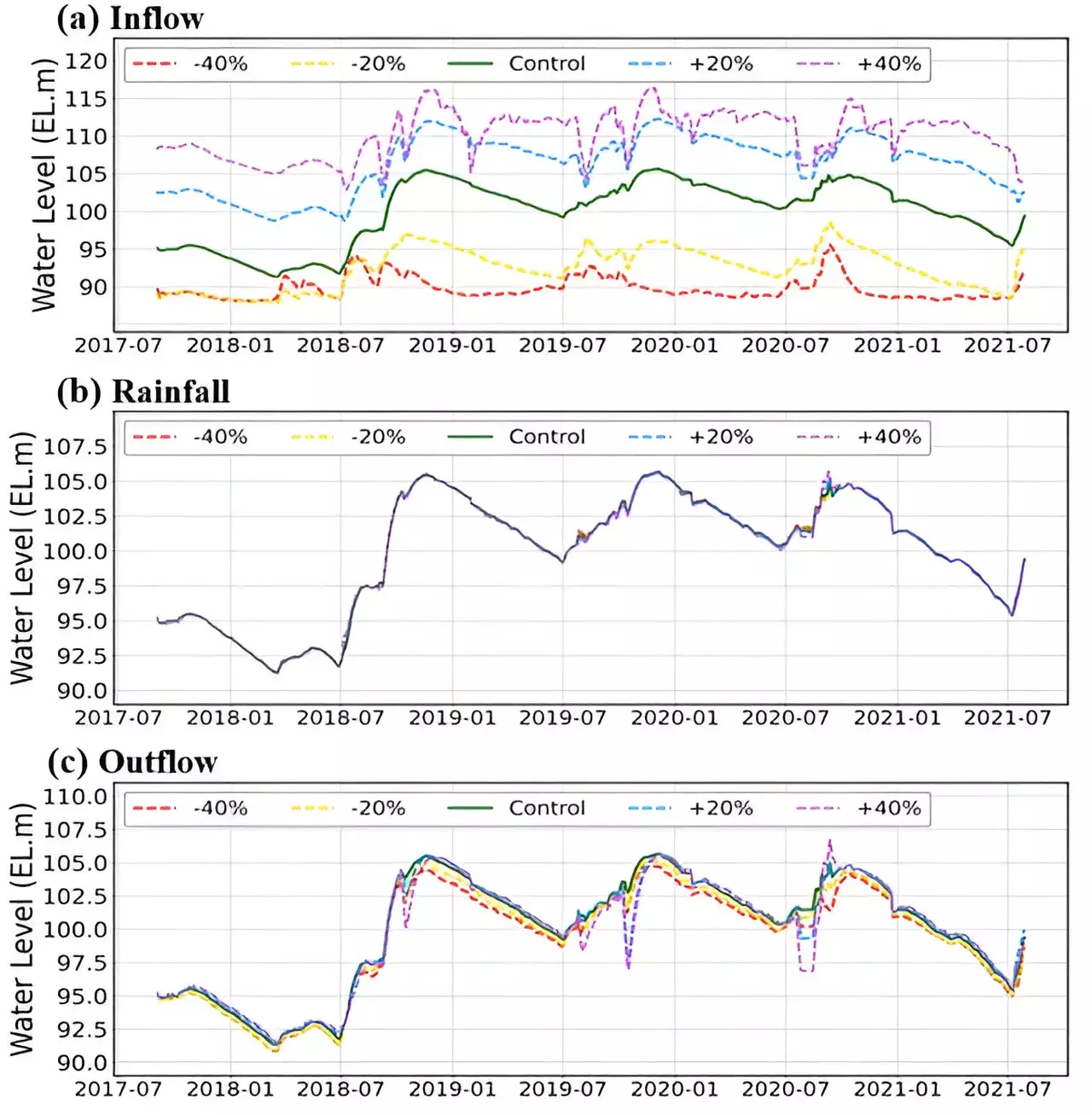Dam management is a critical aspect of water resource management, especially in regions prone to extreme weather conditions like Korea. However, traditional physical models used for dam operations have proven to be insufficient in coping with the increasing challenges brought by the global climate crisis. In light of this, a research team from Pohang University of Science and Technology (POSTECH) explored the potential of artificial intelligence (AI) in predictive dam management.
The team, led by Professor Jonghun Kam and Eunmi Lee, aimed to develop an AI model that could accurately predict the operational patterns of dams in the Seomjin River basin. By employing the Gated Recurrent Unit (GRU) model, a deep learning algorithm, the researchers trained the AI model using extensive data from dams along the river spanning almost two decades.
The results of the analysis were promising, with the AI model demonstrating remarkable accuracy, boasting an efficiency index exceeding 0.9. Precipitation was found to have a negligible impact on dam water levels, while variations in inflow significantly influenced the water level. Moreover, the AI model successfully captured the unique operational nuances of each dam, as evidenced by different water level responses to identical changes in outflow.
Beyond predicting dam operation patterns, the researchers delved into understanding the decision-making processes of the trained AI models. By manipulating input variables, such as precipitation, inflow, and outflow, the team devised explainable scenarios to examine how the AI model responded to these alterations. This analysis provided valuable insights into the factors influencing water level fluctuations and allowed for a more comprehensive understanding of the dam’s effectiveness.
Averting Disasters through Predictive Dam Management
The incident of the dam near the Seomjin River in Korea, which resulted in significant damages, could potentially have been averted through the implementation of predictive dam management. By utilizing AI algorithms trained on extensive data, the researchers aim to enhance future dam operations and mitigate risks associated with extreme weather events.
The successful application of AI in predictive dam management opens up new possibilities for water resource management worldwide. By integrating AI models into existing dam management systems, authorities can benefit from more accurate and timely predictions of water levels, enabling them to make informed decisions regarding dam operations.
The Limitations and Challenges
While the study showcased the immense potential of AI in predictive dam management, it is important to acknowledge the limitations and challenges that accompany its implementation. The need for comprehensive and high-quality data, as well as continuous model training and updates, pose significant hurdles. Moreover, the interpretation of AI model outputs and decision-making based on those outputs require further research and refinement.
The research conducted by the team at POSTECH highlights the transformative impact of AI in predictive dam management. By harnessing the power of AI algorithms, it is possible to accurately predict dam water levels and understand the factors influencing their fluctuations. This breakthrough has the potential to revolutionize dam operations and enhance water resource management in the face of increasing climate uncertainties. However, further research and collaboration with relevant stakeholders are necessary to overcome the challenges and maximize the benefits of AI in this field.


Leave a Reply